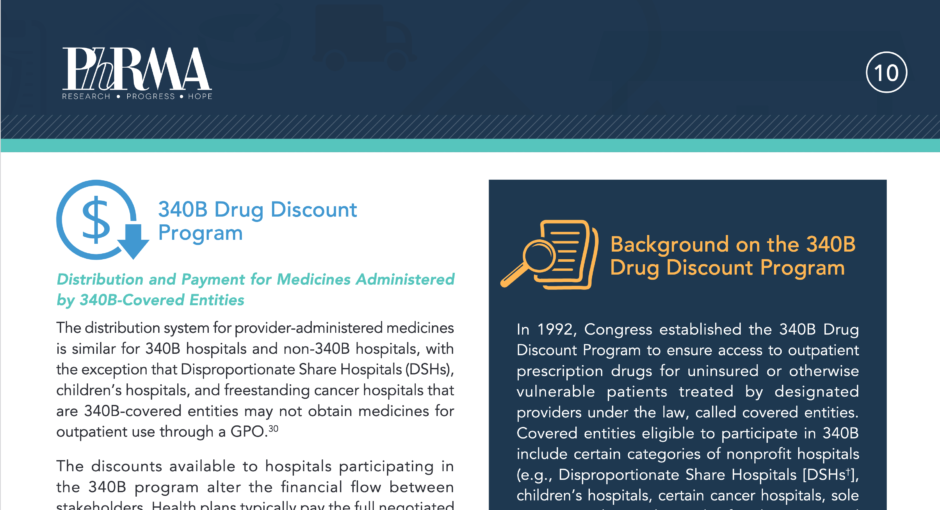The ability to generate profits through the 340B program prompts hospitals to buy physician practices and shift delivery of care to more costly hospital outpatient settings, driving up drug costs for patients and employers, Pharmaceutical Research and Manufacturers of America (PhRMA) says in a new report. The American Hospital Association (AHA) called the report “a misguided attack” on 340B.
PhRMA’s new paper, released Feb. 4, is a sequel to its 2017 report about how actors in the pharmaceutical supply chain other than drug manufacturers affect drug costs. The first paper looked at the roles played by wholesalers, pharmacies, pharmacy benefit managers (PBMs), and health plan sponsors.
The new drug industry paper describes previously released research on hospital outpatient departments. Its main conclusions are:
- Hospitals commonly mark up prices on drugs charged to commercial health plans.
- Market consolidation has given hospitals more leverage to negotiate higher drug reimbursement rates, and to shift care to more costly sites.
- “Explosive growth in the 340B Drug Discount Program, particularly in the hospital setting, has resulted in significant market distortions that drive up cost of treatment, while failing to ensure that patients receiving treatment benefit from the discounts hospitals receive on these medicines.”
In a Feb. 11 post on AHA’s blog, association Vice President Tom Nickels criticized the report for failing “to acknowledge immense drug company profits,” or the fact that “it is the drug companies that are solely responsible for setting list prices for their drugs as well as determining subsequent price increases.”
Regarding 340B, he said hospitals in the program use their drug discount savings “to provide important services and programs to vulnerable communities that they otherwise would not be able to provide,” such as medication management programs, diabetes education programs, and mental health services.


